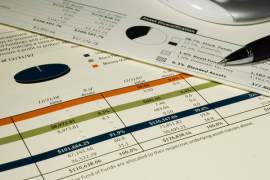
Stocks

A large portion of the American population invests their financial savings in the stock market. In theory, purchasing shares of stock allows an individual to obtain money without having to work. The work is carried out by the company in which he/she has invested, in hopes it will make him/her money.
However, if an individual invests his/her financial assets without conducting thorough research or in light of unforeseeable downturn, there is a chance that he/she will lose a large slice of his/her investment. In fact, some individuals have lost the majority of their life savings by investing in corporations that have been financially unsuccessful. On the other hand, there have also been investors that have flourished and managed a substantial profit as a result of his/her investments. In short, investing in the stock market is all about taking risks.
Background
The stock market plays an essential role in the United States economy, as well as in the international economy. People throughout the nation tune into the news daily in order to see the progress of the stock market for that day. A substantial decrease in stock value may lead to widespread panic, resulting in the hasty sale of shares. This may lead to diminished investor confidence, decreased consumer spending, and eventually, a situation such as this may play a role in an economic crisis.
Despite the prevalence and the importance of the stock market, there are many people that do not understand it. Briefly, in order to attain financial assets, a corporation will sell stocks or shares of the company. When an individual purchases a stock, he/she is essentially lending a corporation money to utilize on company operations. The success of the investor depends upon the success of the company. If a company is financially unsuccessful, then an individual may lose a portion of his/her investment. Needless to say, an individual should understand all aspects of the stock market and stock trading before he/she purchases stock in a company.
Usage
Many people invest their precious financial resources in the stock market. The stock exchange is often a topic of anxiety for some and enthusiasm for others, as the condition of the stock market often dictates the emotional and mental state of the public. However, many people do not understand the way the stock market operates or why individuals would invest in stocks. This is especially true because purchasing stocks is a risky proposition, and if the stock market crashes, a person may lose his/her individual investment.
Despite the uncertainty associated with purchasing stock, thousands of people may choose to invest in a company by purchasing a share of stocks, as there are numerous benefits associated with becoming a stockholder. Some investors simply enjoy the adrenaline rush and excitement surrounding trading stocks. Other people purchase stocks clinging to the hope they will make a profit off of a small sum of money. However, an individual may choose to invest in a company because he/she wishes to support the company's endeavors, or because he/she wants a voice in the company's operation.
Common Stock
When an individual purchases a share of stock, he/she will usually purchase common stock. Common stock is the most popular type of stock purchased on the stock market. Imaginably, there are positive and negative aspects of purchasing common stock. When individuals invest in this type of stock, they have no guarantee they will receive any profit on their investments. If the stock market crashes, or if a corporation is forced to file for bankruptcy, it will significantly impact one’s investment.
Preferred Stock
Individuals are often hesitant about investing in a share of stock due to the risks that are often associated with this type of investment. A share of stock essentially functions like a loan between lenders and consumers. However, in the case of stocks, it is consumers that are lending financial resources to a corporation with the hope they will be yielded a profit from this investment. If a company is not financially successful, investors will not make a profit and may even lose the initial monetary value of stocks that they purchase. Due to this risk, many investors choose to purchase preferred stocks.
Like common stocks, preferred stocks have attractive benefits, but they also maintain some disadvantages. When an individual purchases preferred stock, he/she has much more protection in the event of bankruptcy than other stockholder do. However, in order to attain this protection, preferred stockholders must relinquish their voice in the company. Even so, this is a trade-off that many investors feel to be worth it.
Stock Dividends and Rights of Shareholders
Purchasing a share of stocks is often a risky endeavor, especially when an individual makes a large investment in a company. When an individual obtains a share of stock, he/she is providing a company with essential financial resources that are necessary to operate a business. As a result, every investor becomes a partial owner of the company that they invest in as incentive. As partial owners of a corporation, investors obtain shareholder rights. These exact rights will vary from one corporation to the next and also differ based upon the type of stock that an investor has purchased.
However, in most cases, investors will receive the right to vote regarding issues that affect the future of the company. They will also obtain rights regarding the assets of the corporation and the liquidation of these assets in the event the company is forced to file for bankruptcy. Shareholders will not be permitted to dictate the way that a corporation is operated, but if they are unhappy with the progress of a corporation, they may decide to vote for new members for the board of directors.
The stock market is an important aspect of the national and international economy. The value of stock shares may indicate or even determine the financial success of a corporation. Likewise, the condition of the stock market may denote or affect the state of the economy.
Throughout history, periods of diminished stock share values have contributed to multiple stock market crashes and widespread panic. When the value of many stock shares decrease simultaneously it may result in what is known as a stock market crash.
During a stock market crash, shareholders will often relinquish their partial ownership of a company by selling their stock shares. They may be required to sell each stock share for much less than the original value of the share, thereby losing money.
Diminished stock share rates will decrease investor confidence, and accordingly, many individuals may choose to avoid investing in the stock market altogether. During periods of decreased stock share value, companies may experience a drastic drop in consumer investments.
As a company utilizes stock investments to help fund business operations, the corporation may suffer from the inability to meet financial obligations, especially amid a long-term recession or when it is unable to obtain loans from creditors. If this continues for a substantial period of time, a corporation may be required to file for bankruptcy.
Despite the importance of the stock market to the economy, and therefore, to our everyday lives, many people are unaware of how the stock market operates. Indeed, purchasing stock shares may seem like a difficult and complex process reserved for experienced financial experts.
However, with some thorough research, anyone can invest in stock shares. With the advent of technology and the increased reliance on the Internet, investors may address all of their stock exchange questions.



















